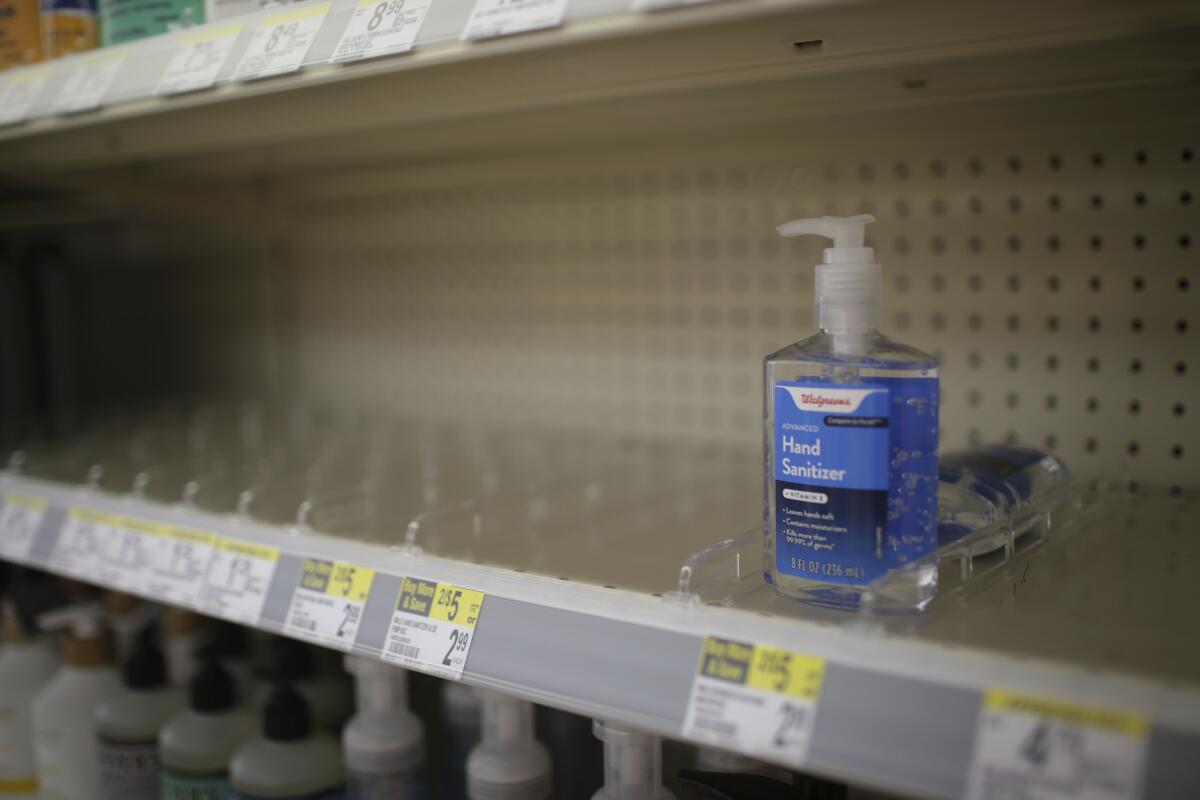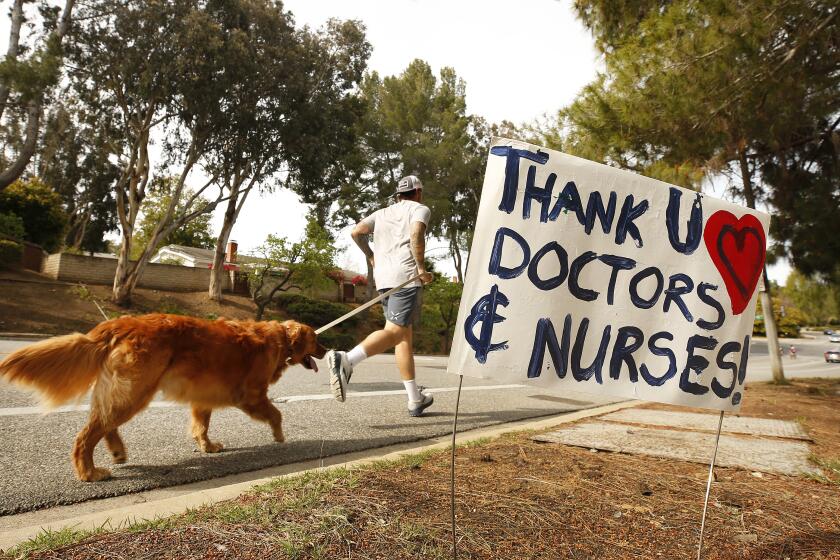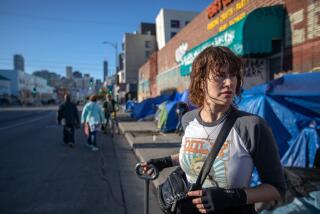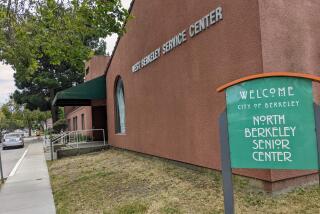The volunteer operation to produce hundreds of gallons of hand sanitizer for Bay Area’s most vulnerable
Inside a laboratory at UC Berkeley, a PhD student and a research assistant have been working nonstop for nearly a month to produce hand sanitizer for tens of thousands of the Bay Area’s most vulnerable residents.
“If we’re not churning or mixing, we’re on the phone or answering emails,” said PhD student Abrar Abidi. Often, that work, funded by donations and out-of-pocket costs, continues well beyond midnight — long after they’ve left the student teaching lab at the Li Ka Shing Center for Biomedical and Health Sciences.
Their goal is ambitious: produce enough sanitizer for every homeless person and vulnerable individual throughout the Bay Area who may not have the luxury of physical distance during the coronavirus pandemic. The group has distributed sanitizer to homeless shelters, San Francisco County Jail and food banks throughout San Francisco — one of the first cities to issue a shelter-in-place order.
Backed by their university’s approval and aided by a handful of volunteers, including at least one other campus laboratory, Abidi, 26, and Yvonne Hao, 22, have produced hundreds of gallons of sanitizer using products found inside the lab to match a formula designed by the World Health Organization.

Since the coronavirus outbreak began, the federal Centers for Disease Control and Prevention stressed the importance of hand-washing above all else. Hand sanitizer should be used as an alternative when soap and water are not readily available, officials have said. But for some, hand sanitizer is a much needed protective measure that’s not readily available.
“You have thousands of people who have been obliged to live on the street and have barely any place to wash their hands,” said Abidi, who is in his second year of graduate school for molecular and cell biology.
“I believe that having access to basic hygiene supplies and the ability to keep ourselves healthy should be a basic human right,” said Hao, who was previously working on genome-engineering projects before turning her attention to COVID-19.
San Francisco County has seen at least 14 deaths linked to the coronavirus and more than 870 confirmed cases of infected individuals. Nearby Alameda County has counted at least 23 deaths and more than 840 confirmed cases.
One of the first batches of sanitizer was delivered to more than 900 inmates at San Francisco County Jail after Elina Kostyanovskaya, a PhD student at UC San Francisco, flagged Abidi to the dangers posed by a potential outbreak in such a space. Four members of the San Francisco Sheriff’s Office have tested positive for the virus, including one who had been assigned to the jail. The sheriff’s department has since said that the deputy tested false positive.
“Social distancing is pretty impossible in these facilities,” Kostyanovskaya said.
Kostyanovskaya, 27, who is working with the Science Policy Group at UCSF to develop hand sanitizer for the jail and prison populations, added that if a jail outbreak occurred, the infected would probably have to be moved inside an already overloaded public health system.
According to San Francicso Dist. Atty. Chesa Boudin, the inmate population at the county jail has decreased from 1,238 in January to 766 as of last week. Still, outbreaks of the virus among those who are incarcerated continue to be of growing concern after a spike in coronavirus infections was reported at the Santa Rita Jail in Alameda County.
Looking for assistance, Abidi called the office of county Supervisor Dean Preston, whose campaign he had previously worked on. The aide who picked up the phone lived in a house in Haight-Ashbury, which has since become a main distribution and packaging site.
Anthony Turner, 28, is a carpenter by day who found himself with time on his hands as job demands slowed amid the pandemic. He and another resident of the house have been leads on the distribution front, bottling the sanitizer by the ounce and working with a network of more than a dozen community activists to drop it off throughout the city.
“The absurdity that this has fallen to us is not lost on us,” Turner said. “For the moment, it seems like groups of committed San Franciscans can stop the bleeding. But the fact that it fell to such a spontaneous operation is telling. When the dust settles and credit and blame is dispensed, we all need to remember who stepped up for those who needed it most. And who didn’t.”
A GoFundMe campaign was launched to collect money for the bottles, and local businesses, including Alameda Packaging, have previously donated an ample supply.
One of the first San Francisco shelters that received sanitizer has since had an outbreak of more than 70 people. All the while, confirmed cases of the virus continue to rise throughout California, an especially concerning reality for the state’s most vulnerable.
Abidi said the operation will remain not-for-profit as a push for monetization would jeopardize the principle of the project.
“It’s as perverse an idea that people should pay to be in the sun or pay to breathe air or drink water,” he said.
The sanitizer work will continue until there is no longer a need — a stance that all involved seem to steadfastly endorse.
“I think goodwill is at an all-time high,” Hao said. “That is something positive, I suppose, in light of this crisis.”
More to Read
Sign up for Essential California
The most important California stories and recommendations in your inbox every morning.
You may occasionally receive promotional content from the Los Angeles Times.












